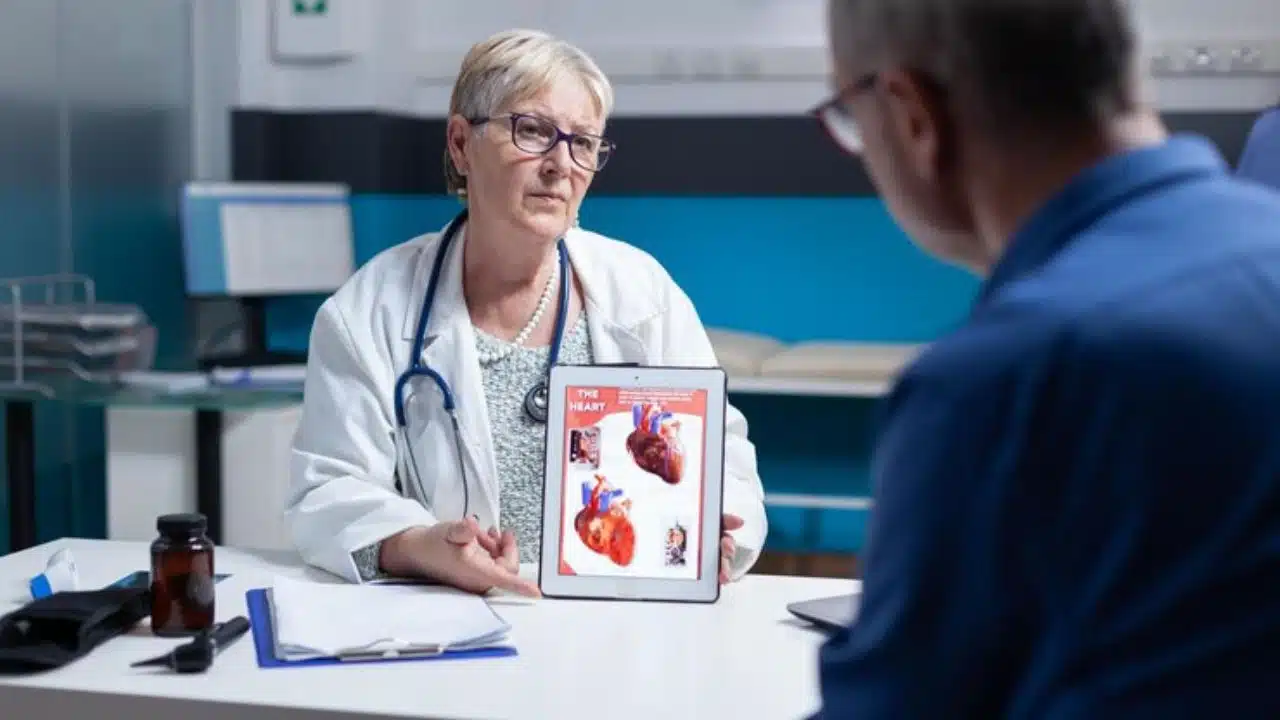Liver cancer is a severe disease that begins in the cells of the liver, a football-sized organ situated in the upper right abdomen. The liver performs essential functions such as storing nutrients, removing waste products from the blood, and producing bile for digestion.
Several types of cancer can originate in the liver, with hepatocellular carcinoma being the most common form, starting in the primary liver cells called hepatocytes. Other less common types include intrahepatic cholangiocarcinoma and hepatoblastoma.
It’s more common for cancer to spread to the liver from different parts of the body, such as the colon, lung, or breast. This type of cancer is known as metastatic cancer and is named after the organ where it originated.
Early stages of liver cancer often go undetected due to a lack of symptoms, making it crucial for individuals at risk to undergo regular screening and medical check-ups.
Symptoms of Liver Cancer
Liver cancer is often asymptomatic in its early stages, making early detection challenging. However, as the disease progresses, various symptoms may become apparent. These include unintended weight loss, loss of appetite, and persistent upper abdominal pain.
Nausea, vomiting, and general fatigue are also common. Some patients may experience abdominal swelling, jaundice (yellowing of the skin and eyes), and chalky white stools. These symptoms should prompt an immediate consultation with a healthcare provider.
It’s important to note that these symptoms can also indicate other health conditions, further underscoring the necessity of medical evaluation. Early detection and prompt treatment are critical for improving the prognosis and quality of life for those affected by liver cancer.
Causes of Liver Cancer
Liver cancer occurs when liver cells undergo mutations in their DNA, leading to uncontrolled cell growth and tumor formation.
The exact cause of these genetic changes is often unknown. Chronic infections with hepatitis B and hepatitis C viruses are well-established causes, as they lead to chronic liver inflammation and damage.
In some cases, liver cancer develops in individuals without any underlying liver disease, suggesting that genetic and environmental factors may also play a role.
Besides viral infections, other risk factors include chronic alcohol consumption, exposure to aflatoxins (toxins produced by molds on poorly stored crops), and inherited liver diseases such as hemochromatosis and Wilson’s disease.
Understanding the causes of liver cancer can help develop preventive strategies and targeted therapies.
The Role of Alcohol in Liver Cancer
Heavy, long-term alcohol consumption is a significant risk factor for liver cancer. Alcohol can cause cirrhosis, a condition characterized by extensive scarring of the liver, which significantly increases the risk of cancer.
The damage caused by alcohol-induced inflammation and scarring creates an environment conducive to the development of cancerous cells. The Centers for Disease Control and Prevention (CDC) recommends that adults limit alcohol consumption to reduce the risk of liver cancer and other alcohol-related diseases.
For women, this means no more than one drink per day, and for men, no more than two drinks per day. Reducing or eliminating alcohol intake is a crucial step in liver cancer prevention, as it mitigates one of the most controllable risk factors associated with the disease.
Other Risk Factors for Liver Cancer
In addition to chronic alcohol consumption, several other factors increase the risk of developing liver cancer. Chronic infections with hepatitis B and C viruses are significant contributors, as they cause long-term liver damage and inflammation.
Cirrhosis, regardless of its cause, significantly elevates the risk of liver cancer due to the extensive scarring it induces in the liver tissue. Nonalcoholic fatty liver disease (NAFLD), diabetes, and obesity are also notable risk factors.
Environmental factors, such as exposure to aflatoxins from contaminated food, can lead to liver cancer. Genetic conditions like hemochromatosis and Wilson’s disease further elevate the risk.
Understanding these risk factors is vital for identifying high-risk individuals and implementing appropriate preventive measures.
Prevention of Liver Cancer
Preventing liver cancer involves addressing and mitigating its risk factors. One of the primary prevention strategies is to reduce alcohol consumption, as heavy drinking is a significant risk factor for liver cancer.
Maintaining a healthy weight through a balanced diet and regular exercise can prevent conditions like nonalcoholic fatty liver disease and diabetes, both of which are risk factors for liver cancer.
Vaccination against hepatitis B can prevent infection and subsequent liver damage. Avoiding intravenous drug use and ensuring sterile needles for tattoos and piercings can reduce the risk of hepatitis C infection.
For those already infected with hepatitis B or C, seeking medical treatment can lower the risk of liver cancer. Regular screening for individuals at high risk, such as those with chronic hepatitis or cirrhosis, is crucial for early detection and treatment.
Liver Cancer Screening
Liver cancer screening is not generally recommended for the general population due to the lack of evidence that it reduces mortality rates. However, individuals with high-risk factors such as chronic hepatitis B or C infections, cirrhosis, or a family history of liver cancer should consider regular screening.
Screening typically involves a blood test to check for alpha-fetoprotein (AFP) levels and an abdominal ultrasound every six months. These tests can help detect liver cancer at an earlier, more treatable stage.
Discussing the benefits and risks of screening with a healthcare provider can help high-risk individuals make informed decisions about their health. Early detection through screening can significantly improve treatment outcomes and survival rates.
Summary
Liver cancer is a complex disease with multiple risk factors, including chronic alcohol consumption, hepatitis infections, and genetic conditions. Understanding these risk factors and taking preventive measures can significantly reduce the likelihood of developing liver cancer.
Regular medical check-ups and consultations with healthcare providers are essential for at-risk individuals. Early detection and treatment are critical for improving outcomes and providing a better quality of life for liver cancer patients.
By adopting healthy lifestyle habits, such as moderating alcohol intake, maintaining a healthy weight, and getting vaccinated against hepatitis B, individuals can reduce their risk of liver cancer and other related diseases.





































